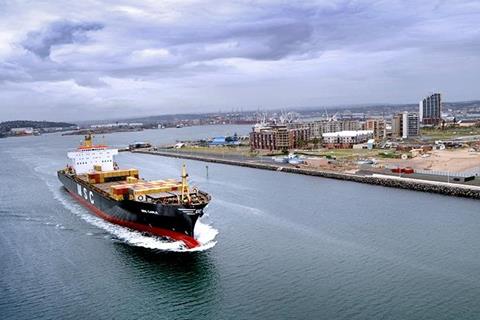South Africa’s Transet National Ports Authority (TNPA) is moving ahead with green hydrogen strategy which involves the construction of a greenfield new port energy hub in the Northern Cape.
The TNPA has earmarked Boegoebaai close to the Namibian border as the potential location for the new port,which it is calling a first step towards realising the country’s green hydrogen strategy.
The port authority is currently calling on port and raildevelopers to respond to a Request for Qualification (RFQ) for the design, funding and construction ofplanned port and rail infrastructure to service the new hub.
”The information sought through the RFQ is necessary for TNPA to chart a way forward in line with ourstrategic objective to operationalise a port in the region by 2026,” saidMagenthran Ruthenavelu, programme director, TNPA.
Strategic step
TNPA’s RFQ is intended to obtain information to shape the final solution as well as identify and select qualifyingdevelopers who can undertake the design, funding and construction of a capital-efficient greenfield, deepwater port and associated infrastructure. It also seeks a rail solutionproposal which will connect the port to the mining and industrial hubs in the province.
RFQ documents can be accessed from the National Treasury’s e-Tender portal/or the Transnet website.Responses to the RFQ must be submitted by no later than 12pm on 2 November 2022.
TNPA is focusing on work across the board to transition its energy use to more greener means. Last month, itannounced a Request forInformation (RFI), calling on private sector participants to submit project proposals for the introduction of arenewable energy programme at its eight commercial seaports.
This follows an internal audit which indicated a need to stabilise energy supply, costs andreduce greenhouse gas emissions at its eight commercial seaports, namely the ports of Port Elizabeth,Ngqura, East London, Mossel Bay, Saldanha, Cape Town, Durban, and Richards Bay.
The port authority is particularly interested in wind and solar, but is also considering the incorporation of hybrids of hydroelectric power, ocean energy, biomass and geothermal.
Implementation of the port authority’s Renewable Energy Programme aims to see the procurement of 50 – 80 MW ofrenewable energy power generation capacity that can be implemented cumulatively across the country’s commercial seaports.






